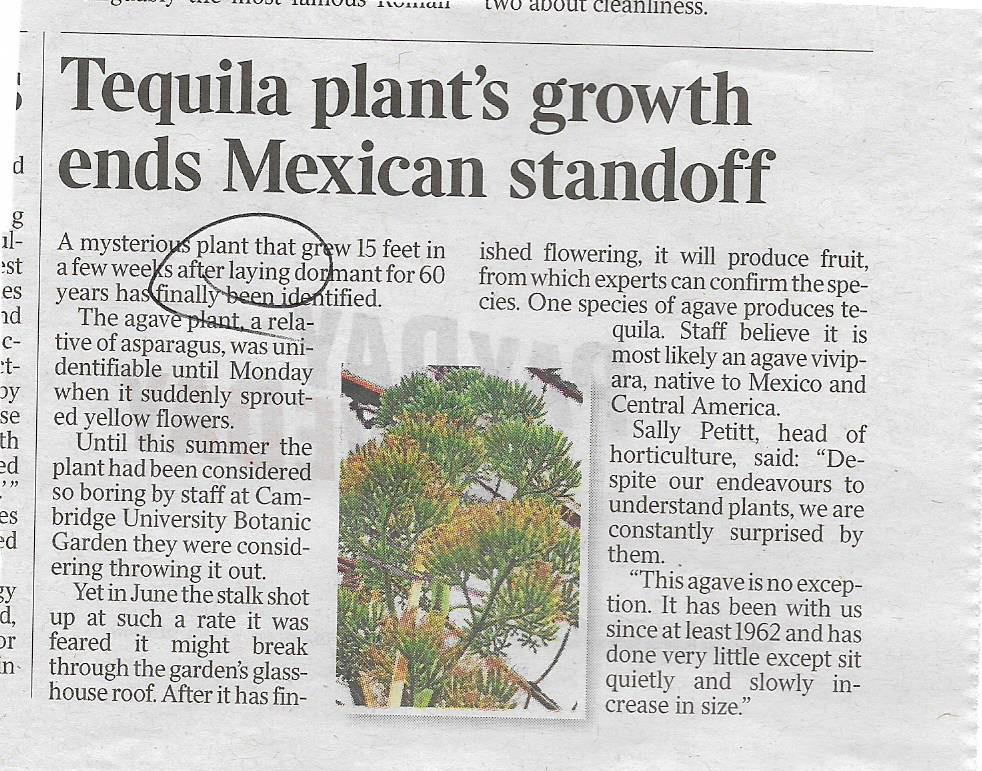 The Times, September 11, 2019
The Times, September 11, 2019
One of the clearest indicators of ignorance is getting the tenses of ‘lay’ and ‘lie’ mixed up. I am staggered that someone calling him or herself a Times journalist, and presumably accepting pay, does not know this most basic English. (By the way, it would have interesting to note that the plant will die after flowering, but I suppose that is too nerdy. The last thing a smart young person wants to admit is to having some general or scientific knowledge.)
This is my Style Matters entry, not that it will filter through to the moron who put ‘laying’ instead of ‘lying’.
- lay: This is the past tense of the verb ‘to lie’ as in ‘I lay on the ground yesterday’ and is also the transitive verb (transitive means it must take an object; it cannot stand alone) ‘to lay’ as in ‘the hen lays eggs’ or ‘I am going to lay the table’. The past tense of ‘to lay’ is ‘laid’. Of course, as everyone knows, ‘lay’ and ‘laid’ are also colloquial sexual expressions and great care must be taken to avoid an inadvertent double meaning. However the chief offence is using ‘lay’ instead of ‘lie’, as in ‘I’m going to lay down’, ‘She is laying on the bed’ or ‘The lion lays in wait for its prey’, or using ‘laid’ instead of ‘lay’, as in ‘He laid on his bed’. To complete the confusion there is the verb ‘to lie’ or tell an untruth. This one is comparatively simple, however.A brief tour round the tenses:to lie (as in recline)
present: I lie on the bed, he lies on the bed/I am lying on the bed
past: I lay on the bed, he lay on the ground
participle (with a form of have) I/he/we have/has/had lain on the bed
Note that the word ‘laid’ does not exist in this verb.
to lay (as in to put or place, followed by an object)
present: I lay the table, the hen lays eggs/I am laying the table
past: I laid the table, the hen laid eggs
participle: I/she have/has/had laid the table
Note: this is the only polite use for the word ‘laid’.
to lie (as in to tell an untruth)
present: I lie, he lies/he is lying
past: I/he lied
participle: I/he have/has/had lied
You will see that there are numerous opportunities for double meanings even if you are being perfectly accurate. If you see such a pitfall looming, at all costs find another form of words. If you are about to use the word ‘lay’ at all, and you are not 100 per cent sure that it is correct, check. There are few errors that betray ignorance as much as this one. Incidentally, British writers use ‘lie of the land’ while Americans say ‘lay of the land’.